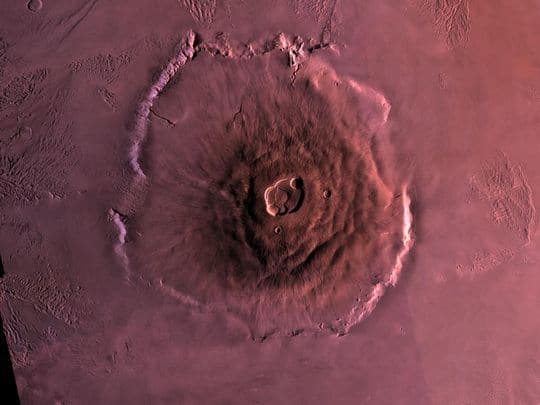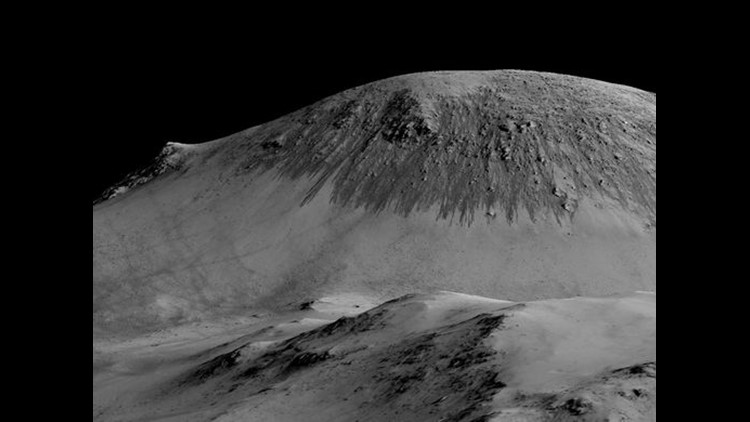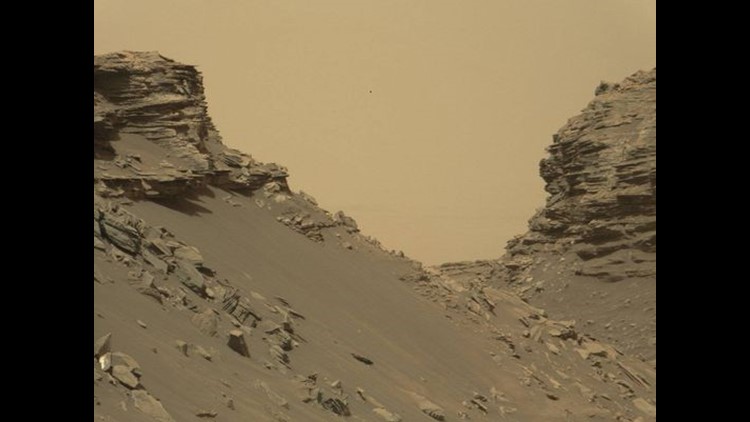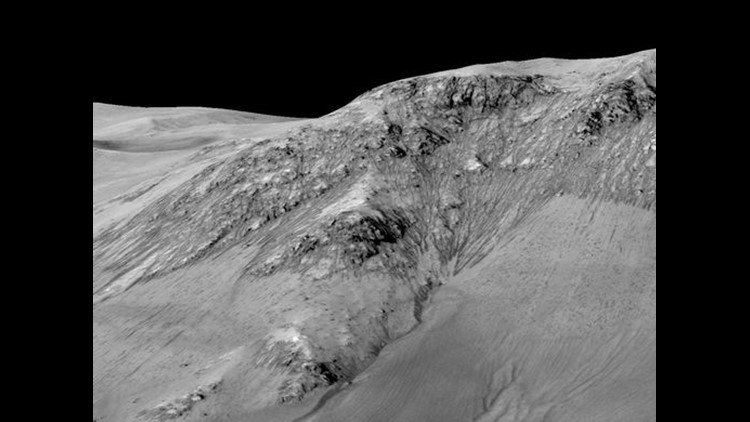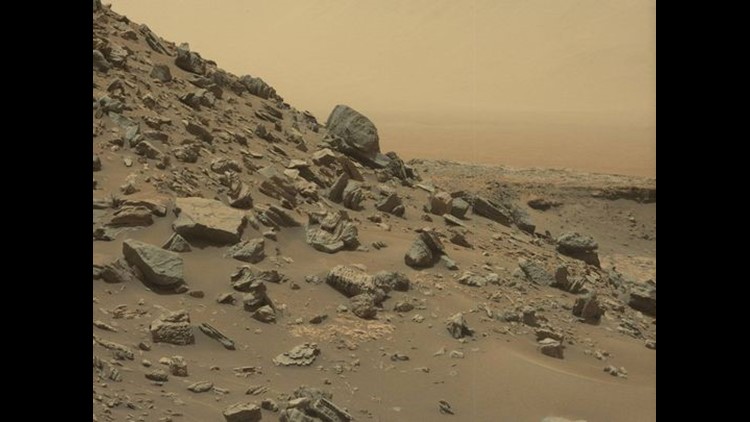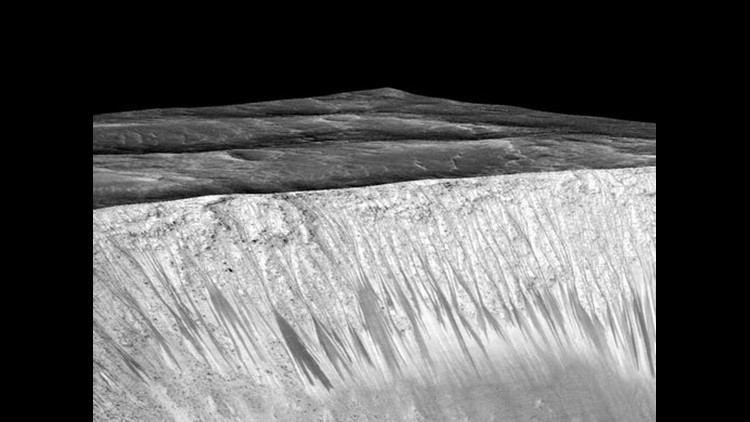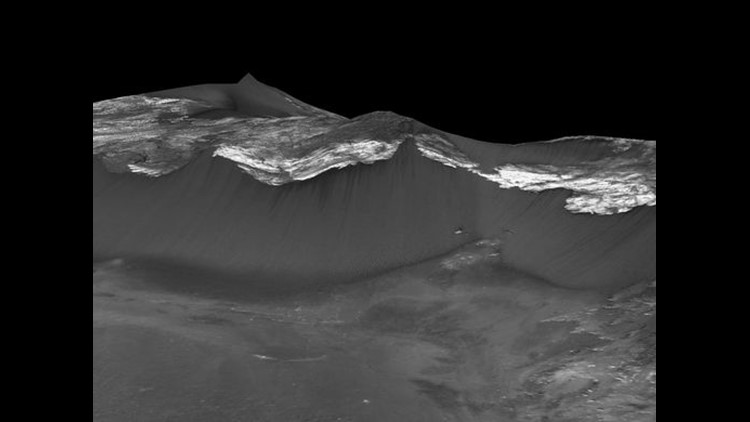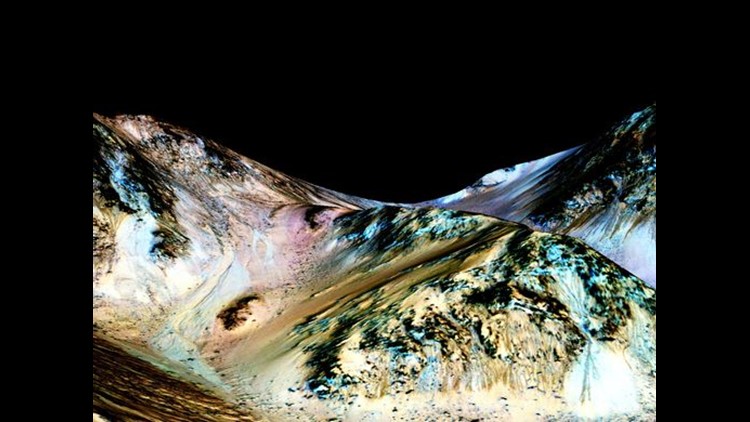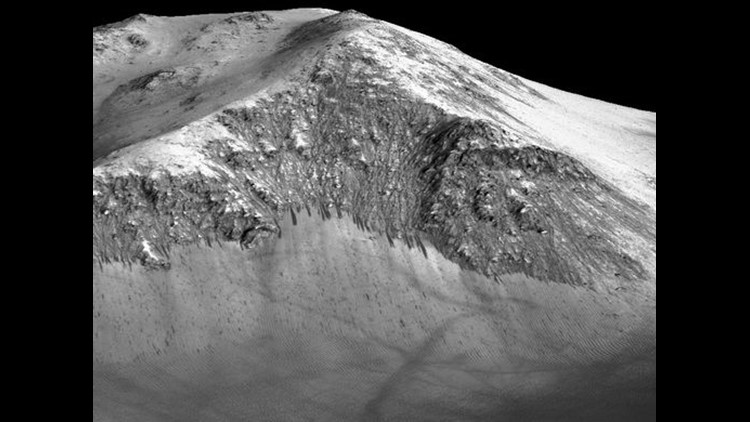Talk about hot stuff: A massive volcano on Mars erupted continuously for 2 billion years, a new scientific study reports.
"For 2 billion years, there's been sort of a steady plume of magma in one location on the surface of Mars," study co-author Mark Caffee of
"We don't have anything like that on Earth," he added.
How do we know the volcano belched rock and magma for that long? Credit goes to a 7-ounce meteorite that was blasted from Mars to Earth. It was found in Algeria in 2012.
The 2.4-billion-year-old-meteorite's journey to Earth began when something slammed into the surface of Mars, hitting a volcano or lava plain. The impact ejected rocks into space, and fragments of these rocks eventually fell to Earth as meteorites.
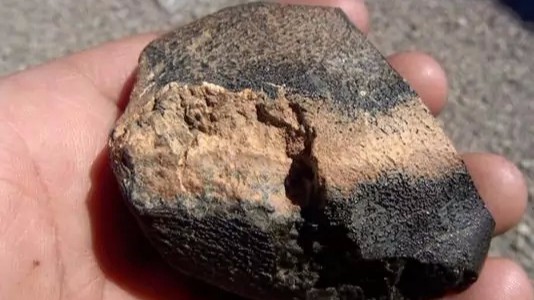
"Even though we've never had astronauts walk on Mars, we still have pieces of the Martian surface to study, thanks to these meteorites," Caffee said. The meteorites allow scientists to research the geology on the surface of Mars, he said.
Mars is already known for the most magnificent volcanoes in our solar system. This includes the largest volcano in the solar system, Olympus Mons, a monster volcano 17 miles tall with a footprint the size of Arizona. The meteorite may have come from Olympus Mons, but scientists aren't sure.
An analysis of the meteorite gives information about its age, its magma source, the length of time in space and how long the meteorite was on Earth’s surface.
The study also found that some of the longest-lived volcanoes in the solar system are likely on the Red Planet.
Martian volcanoes can grow to such enormous proportions because, unlike Earth, Mars doesn't have plate tectonics that constantly shuffle the surface.
The research was led by Tom Lapen, a geology professor at the University of Houston, and was published last week in the peer-reviewed journal Science Advances.

